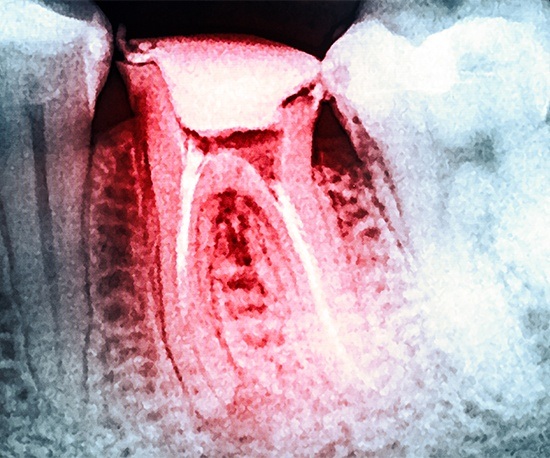
Why Would You Need to Have a Tooth Extracted?
Dr. Gandhi may recommend tooth extraction if you have teeth that are severely damaged due to decay or if you have advanced gum disease. Tooth decay often damages the inner layers of a tooth beyond repair, while gum disease can erode the bone and tissue supporting the tooth. If restoration is not feasible, extraction will be the only viable option.
A tooth may also need extraction due to a severe infection that cannot be addressed using medication or root canal therapy. Sometimes teeth are broken or damaged beyond repair due to injury or trauma. Teeth may also need extraction if they are blocking permanent ones from coming in, or for orthodontic treatment of a crowded mouth, which makes room allowing the remaining teeth to shift into alignment.

Tooth Extraction Overview
Tooth extraction can typically be performed right at our dental office in a short visit. Dr. Gandhi will start by numbing the area using an anesthetic and will administer sedation if needed so that you can relax during the procedure. She will perform either a simple or surgical extraction, depending on how visible and accessible your tooth is.

The Healing Process
Once extraction is over, the healing process begins. Following the procedure, you may need to apply an ice pack to the area to reduce swelling. You may experience discomfort which can be alleviated using the medication Dr. Gandhi prescribes. For the first 48 hours after the procedure, you will need to refrain from smoking or drinking through a straw to avoid dislodging the clot forming in the socket, which can cause a painful condition called dry socket.
Depending on which tooth you need removed, Dr. Gandhi may recommend replacing it with a dental implant or bridge to keep your smile healthy and confident.

Schedule Your Appointment Today
Contact Murphy Dental Home in Murphy, TX and schedule your exam and cleaning to keep your teeth healthy. If Dr. Gandhi finds any problems, she will recommend treating them right away to avoid their progression. While there are times you may need a tooth extraction, that is always our last resort. Our goal is to keep your teeth healthy and sound for a lifetime.

Extraction FAQ’s
If you’re curious about getting a tooth extraction in Murphy, you’ve come to the right place! Contact our office to speak with one of our knowledgeable staff members and get the answers to any specifics. However, we’ve also included the answers to some of the most frequently asked questions about extractions, making the information you need as easy to access as possible. Read on to learn more.
Will I Need Someone to Drive Me Home?
It may be necessary for you to make plans to have someone take you home, but this will depend on the type of sedation used for your procedure. If you receive local anesthesia, there is a high probability that you will be able to take yourself home without any issue. However, for higher levels of sedation or general anesthesia, you should have someone drop you off and pick you up. In fact, especially for those with any type of dental fear or anxiety, we encourage your friend or family member to remain in or around our office, so you’ll have someone to support you if you need them.
What Kind of Dental Care Do I Need After My Tooth is Extracted?
If you had wisdom teeth extracted, no further treatments are necessary. However, for teeth that were removed due to severe decay or damage, we have a variety of restorations to complete your smile and prevent additional dental issues, including dental implants, dental bridges, and partial dentures. The treatment that is best for you will all depend on your pattern of tooth loss. Contact our office to schedule an appointment and learn more about your tooth replacement.
How Can I Prevent a Dry Socket?
A dry socket occurs when there is a breakdown of the blood clot existing in the extraction site, which can happen within 3 to 5 days after your procedure. You may experience pain, a bad taste or odor, and foul breath. Thankfully, you can prevent this from happening by:
- Avoiding smoking or tobacco products
- Avoiding heavy consumption of alcohol
- Maintaining good oral health (brushing and flossing)
- Resting and relaxing for the first few days after your extraction
If you do notice any of the common symptoms that we listed above, don’t hesitate to contact us right away for treatment from Dr. Gandhi! She is an experienced emergency dentist in Murphy who can get you out of pain.
Is My Extraction Covered by Dental Insurance?
Typically, most dental insurance plans will partially cover tooth extractions. However, you must keep in mind that no two plans are the same, which is why coverage can vary. We are always happy to speak with your insurance provider and do all we can to maximize your insurance benefits. Feel free to let us know if you have any questions or concerns—we are ready to help.





